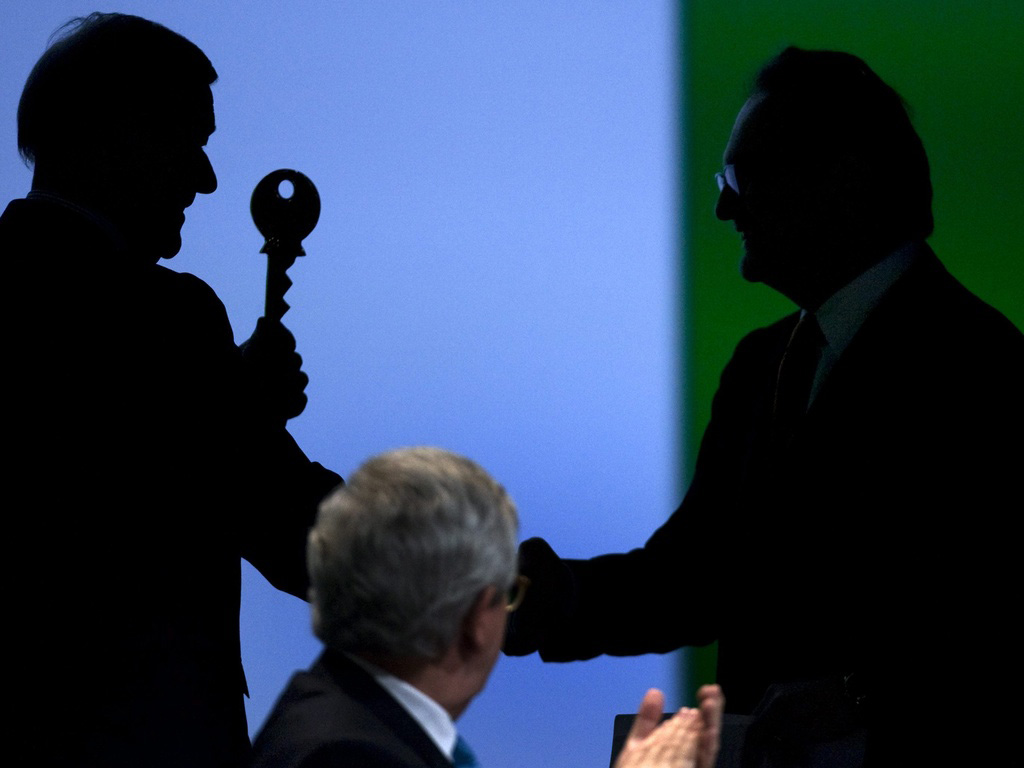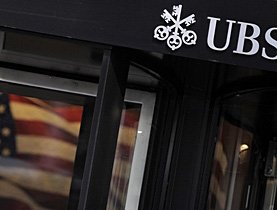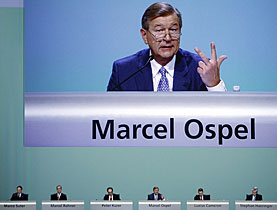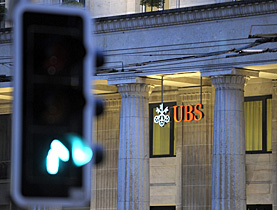Former UBS chiefs to face no charges

Public prosecutors have averted the prospect of another drawn out and expensive Swiss corporate trial by dropping a criminal probe into former UBS bank executives.
News that ex-UBS chairman Marcel Ospel will not face charges in court has angered some people in Switzerland. But others are relieved there will be no repeat of the unsuccessful trial of executives of the former national airline, Swissair.
Ospel was at the helm of UBS in 2007 when the bank was plunged into the financial crisis, and the subsequent damaging legal conflict with the United States authorities over tax evasion.
The Zurich cantonal prosecutor’s office announced on Tuesday that it would not pursue criminal charges against any UBS bosses in connection with the US fiasco that saw the bank violate Swiss banking secrecy by lifting the lid on 4,450 accounts.
It also said that there was no evidence that Swiss laws had been broken by the bank when it helped US citizens to dodge taxes. However, it added that it would follow developments in case new evidence came to light.
For its part, UBS’s current board said they would not seek prosecution on that issue, nor the losses the bank sustained during the subprime mortgage crisis.
“Blatant failure”
“After careful consideration, the Board has decided that years of uncertainty about these matters due to litigation, the outcome of which would be open at best, and related negative attention from such action is not in the interest of UBS, its employees, clients and shareholders,” the bank said in a statement.
Neither statement mentioned names, but Ospel has been widely accused in Switzerland of leading the bank to the brink of disaster. He stepped down as chairman in April 2008 and, along with two other former executives, waived his bonus for that year.
Christian Levrat, leader of the centre-left Social Democrat (SP) party – that had demanded criminal investigations – was incensed at the Zurich prosecutors’ decision, saying it represented a “blatant failure to carry out their job” and vowed to take up the matter further in parliament.
But the prospect of another corporate criminal trial, following the huge Swissair case that ended in failure two years ago, was too much for some people to contemplate.
In that instance, prosecutors had attempted to make the former Swissair boss Mario Corti and 18 other managers and advisors pay for the collapse of the national airline carrier. But the showcase trial, that cost SFr5 million ($4.8 million), failed to secure a single conviction and only resulted in SFr3 million being handed out in compensation to the defendants.
Swissair fiasco
Award winning journalist Constantin Seibt, who covered the Swissair trail and wrote a book about it, believes another complex corporate court case would not necessarily have been welcomed.
“Even if the evidence had been obvious, it would have taken years to bring anyone to court,” he told swissinfo.ch. “The prosecutors are now nervous about having to invest such substantial money and manpower.”
Seibt added that Swiss public faith in the legal system took a nosedive when it failed to deliver restitution to Swissair shareholders and staff.
“Swiss law in any criminal prosecution involving economic cases appears to be quite toothless,” he said.
Matthew Allen, swissinfo.ch
UBS has been plunged into chaos in the last two years after becoming Europe’s worst victim of the subprime crisis – writing down some $50 billion in losses – and becoming embroiled in a tax evasion scandal in the US.
Its problems started to become apparent in July 2007, when chief executive Peter Wuffli stepped down following the collapse of the bank’s hedge fund Dillon Read Capital Management.
Chairman Marcel Ospel stepped down in April 2008 following huge losses and job cuts. He was replaced by chief counsel Peter Kurer, who was in turn ejected in April 2009 to make way for Kaspar Villiger.
Former Credit Suisse boss Oswald Grübel was brought out of retirement to take over as chief executive at UBS in February 2009.
In October last year, the Swiss National Bank (SNB) was forced to inject SFr6 billion ($5.29 billion) into UBS. A facility was also set up to allow the bank to bin up to $60 billion of toxic assets.
UBS has also been haunted by a US investigation that accused the bank of helping wealthy Americans illegally evade $200 billion in taxes. It was forced to pay $780 million in fines and hand over the confidential details of 4,450 clients.
The bank posted a SFr20 billion loss for 2008 and has remained in negative territory ever since, announcing losses of SFr564 million in the third quarter of 2009.
The bank has also suffered massive outflows of assets from its wealth management and asset management businesses. These have totaled SFr226 billion in 2008 and more than SFr90 million so far this year.

In compliance with the JTI standards
More: SWI swissinfo.ch certified by the Journalism Trust Initiative




You can find an overview of ongoing debates with our journalists here. Please join us!
If you want to start a conversation about a topic raised in this article or want to report factual errors, email us at english@swissinfo.ch.